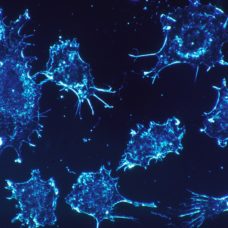Like fertilizers, pesticides have significantly contributed to the agricultural revolution by protecting crops from pest infestations.
However, they are not without their downsides. From treated areas, toxic chemical agents in pesticides can transport to other lands, air, and water. From there, they can pose major environmental and health risks to people, animals, and plants.
The intensive use of synthetic pesticides is partly responsible for the global demise of bees and all other insect species.
Bacteria as a Natural, Safe, and Sustainable Biopesticide
There are what’s called biopesticides that are derived from bacteria, and from other animals and plants.
Bacteria, whose antibiotic resistance can be spread by fertilizers, can act as natural pesticides, or biopesticides.
Now, scientists at Cardiff University in the UK have repurposed a strain of bacteria — called Burkholderia ambifaria — to work as a safe biopesticide.
This bacterial species, Burkholderia, was used as biopesticides up until the 1990s when they were linked to lung infections in people with cystic fibrosis, so they were no longer used as biopesticides.
Cardiff researchers, who have been studying this strain of bacteria for years, found a genomic way around Burkholderia‘s adverse health effects while preserving their biopesticide qualities.
According to research leader Eshwar Mahenthiralingam, from Cardiff University’s School of Biosciences.
“By sequencing the genomic DNA of the bacteria, we were able to identify Burkholderia’s antibiotic-making gene, Cepacin. Further testing demonstrated that Cepacin offered highly effective protection against damping off – a horticultural disease caused by a fungus-like organism,”
Read More: Researchers Discover Pollution-Eating Bacteria
The team used a method of genetic engineering similar to that used to make live vaccines to remove specific fragments of Burkholderia’s DNA.
The result is a mutant strain of bacteria with improved safety and “excellent biopesticidal properties.”
For Prof. Mahenthiralingam, bacteria such as Burkholderia “that have co-evolved naturally with plants, have a key role to play in a sustainable future. We have to understand the risks, mitigate against them and seek a balance that works for all.”
In addition to boosting Burkholderia’s viability as an effective biopesticide, the team’s work will help in biopesticide research that involves many other bacterial strains.
The more biopesticides used for eco-friendly pest-control, the less environmental pollution. The less pollution, the fewer toxins in our food.



















Comments (0)
Most Recent